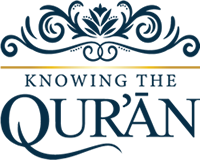Ten things which are a great waste

- The scholar who is never asked.
- Knowledge which is never acted upon.
- Good advice which is never accepted.
- The weapon which is never used.
- The Masjid which is never prayed in.
- The Mus’haf which is never read.
- The wealth which is never spent.
- The horse which is never ridden.
- The knowledge of Zuhd (piety) in one who desires the world.
- The long life in which the next world is not prepared for.
Comment:
Allāh Ta’āla has entwined worldly and religious benefits in the blessings He has bestowed upon us. If we do not seek out the benefits in those blessings, they will be wasted and this would be a sign of ingratitude to the bestower of those blessings. The Almighty orders us to learn from the knowledgeable; if one becomes close to a scholar but does not ask him anything, it is a waste of the scholar’s knowledge. The purpose of attaining knowledge is to act upon it, and thereby beautify one’s personality and character, and to achieve the goodness of this and the next world. If good advice is received, one should act upon it.
Similarly, weapons should be used to defend oneself. One should please Allāh by praying in the Masjid, whilst the purpose of having the Qur’ān at home is to read it and seek guidance for each one of life’s matters. Wealth should be used to fulfill one’s own needs as well as those of others, whilst a conveyance should be used for riding and saving oneself the trouble of walking. The knowledge of Zuhd should bring detachment from the world and reflection upon Al-Akhirah, whilst the benefit of long age is to provide for Al-Akhirah by maximising good deeds done in this world. The Prophet ﷺ said,
‘The best person is the one to whom Allāh gives a long life and during it he performs good deeds, whilst the worst person is the one to whom Allāh gives a long life which he wastes with bad actions.’
Thus if the blessings mentioned above are not used for their purposes, they are redundant and wasted.
(This is an excerpt from our forthcoming publication ‘Islamic Insights: Counsels for our Time’ expected early 2019)


